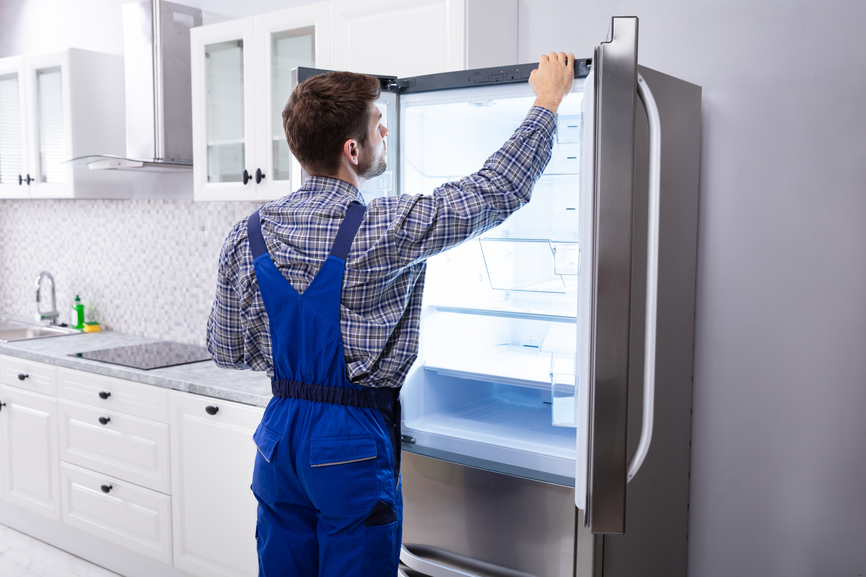Welcome to another detailed exploration at TheKitchenApplianceDad.com, where we strive to solve your appliance puzzles one click at a time! Today, we’re tackling a common yet often alarming issue that many homeowners face: a freezer that makes a sizzling noise. It’s unusual to associate sizzling with something as cold as a freezer, which is why it can be particularly puzzling. Let’s dive into the potential causes of this sound and discuss effective solutions to ensure your freezer runs smoothly and quietly.
Before we can address the problem, it’s important to understand why a freezer might make a sizzling noise. This sound typically occurs for a few reasons, most of which are normal and not indicative of a malfunction.

The most common cause of a sizzling sound in a freezer is the defrost cycle. Modern freezers come equipped with an automatic defrost system that prevents ice buildup on the evaporator coils. During the defrost cycle, ice that has accumulated on these coils is melted. The water from the melted ice then drips onto a heated pan where it evaporates. It is this dripping of water onto the hot defrost heater that creates a sizzling or hissing sound.
Another reason could be the circulation of refrigerant through the coils. As the refrigerant passes through the expansion valve, it moves from a high-pressure area to a low-pressure area, which can sometimes produce a sizzling or hissing sound.
Now that you understand the potential reasons behind the sizzling noise, here are some steps you can take to further investigate and resolve the issue:
If the sound occurs at regular intervals, it’s likely part of the normal defrost cycle. Most freezers defrost every 6-12 hours, and the cycle usually lasts about 30 minutes. Observe if the noise aligns with these periods.
During the defrost cycle, the water should drain into a pan located underneath or behind the refrigerator. If this pan is not properly aligned, or if it’s cracked or overflowing, it could cause excessive noise during the water evaporation process. Check the pan for any issues and replace if necessary.
If the sizzling sound continues after the defrost cycle should have ended, this might indicate a malfunction. It could be a sign that the defrost timer or thermostat is not working properly.
Sometimes, if the freezer door seals are weak or damaged, outside air can enter the freezer, leading to frost buildup and more frequent defrost cycles. Check the seals around the door to ensure they are tight and intact.
If after performing these checks the issue persists, it may be time to call in a professional. Here are some scenarios where professional help is advised:
A defrost heater that’s not working correctly can cause prolonged sizzling as the water isn’t evaporated efficiently. A technician can test the heater’s continuity with a multimeter and replace it if necessary.
A thermostat that isn’t reading temperatures accurately could lead to continuous or improperly timed defrost cycles. Replacement of the thermostat requires specific technical skills and is best handled by a professional.
If you suspect the noise is related to the refrigerant, particularly if it’s accompanied by poor cooling performance, it’s crucial to contact a professional. Handling refrigerant typically requires certification and specialized tools.
To avoid future issues, consider these preventative tips:
We hope this guide has helped you understand and perhaps resolve the mystery behind your freezer’s sizzling noise. Remember, at TheKitchenApplianceDad.com, we’re here to assist with all your appliance concerns, ensuring they run smoothly so you can focus more on enjoying your home life.

